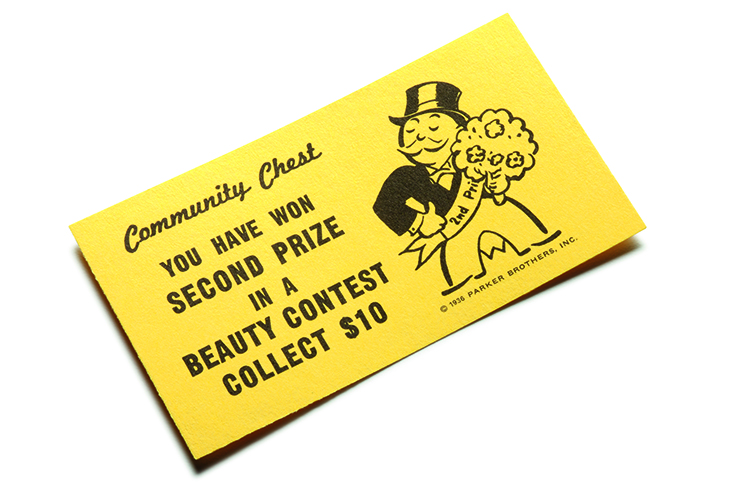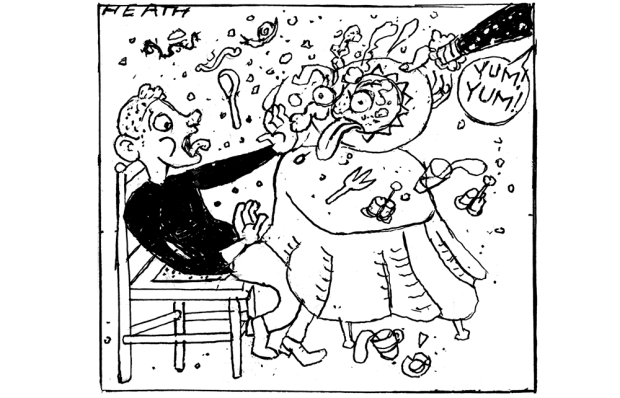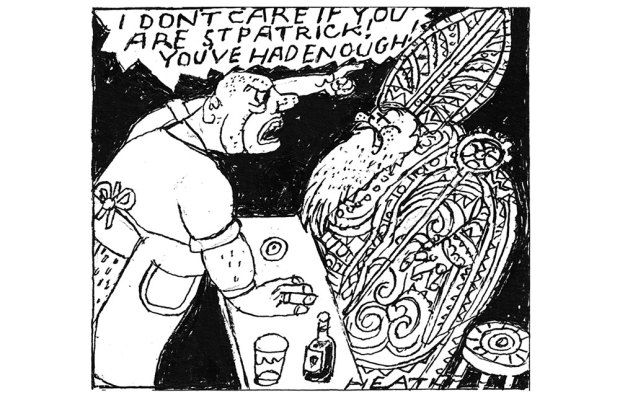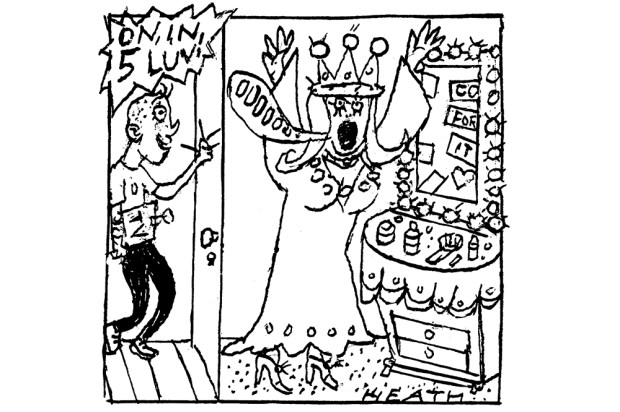I’ve been playing a lot of Monopoly recently. My son got his first grown-up set for Christmas and, even after time has increased the entropy of his Lego sets and Scalextric, this is the present he still pulls out. I have no objection — why wouldn’t I break off from completing my tax return to watch someone else squirm at income tax? — but his mother is doubtful about the game’s message. She has already forbidden the card game Old Maid on feminist grounds (‘You shouldn’t be stigmatised for not being in a couple!’); should we really be teaching him the fun side of capitalism?
One of Fidel Castro’s first actions on seizing power was to ban the game and have all sets in Cuba destroyed. The government of Hungary, less strictly doctrinaire than other communist regimes, licensed an adaptation called Gazdálkodj Okosan! (Budget Prudently!), which may sound joyless but had chance cards like: ‘Go to the cinema! The films are instructive and entertaining. Pay ten forints.’
These communist rip-offs were in fact going back to the source. Monopoly, which was published by Parker Bros 85 years ago, was itself adapted from The Landlord’s Game, designed by American activist Elizabeth Magie to illustrate the dangers of capitalism. Her patent was later bought up by Parker Bros, just as all Monopoly players buy up properties they don’t want to prevent others getting them.
The game evolved in hand-copied versions, with Magie’s politics removed, but other political elements added. One version divided properties by the ethnicity of occupants; the American set’s least desirable properties are still old African–American neighbourhoods.
But even in its ‘capitalist’ form, Monopoly doesn’t celebrate capitalism. In its version of the free market, only the rent-seeking purchasers of property are free; as a player, you are compelled to go where the roll of the dice takes you. And that idea — that consumer sovereignty is an optional extra to capitalism, rather than its whole point — is a deeply unsound lesson for our children. It may teach a few valuable lessons about real estate investing — cashflow is king, and a properly diversified portfolio should not be too diversified — but that is outweighed by fantasies like buying property in Park Lane for only twice your salary. If I had any interest in banning games on political grounds, I’d ban Monopoly. The only way in which it does resemble real capitalism is that the winners think winning is a matter of skill, and the losers think it’s pure luck.
Hasbro, which now owns the Monopoly monopoly, are still producing versions with different politics. There is a feminist version, featuring Ms Monopoly. Instead of real estate, players collect inventions made by women, such as space station batteries and chocolate chip cookies (although the game of Monopoly itself isn’t included, despite being invented by a woman). My son is glad Father Christmas didn’t give him that version — it is, apparently, stupid and unfair that girls get £240 on passing Go and boys £200 — but I might buy it for my wife.
Got something to add? Join the discussion and comment below.
Get 10 issues for just $10
Subscribe to The Spectator Australia today for the next 10 magazine issues, plus full online access, for just $10.
You might disagree with half of it, but you’ll enjoy reading all of it. Try your first month for free, then just $2 a week for the remainder of your first year.














Comments
Don't miss out
Join the conversation with other Spectator Australia readers. Subscribe to leave a comment.
SUBSCRIBEAlready a subscriber? Log in